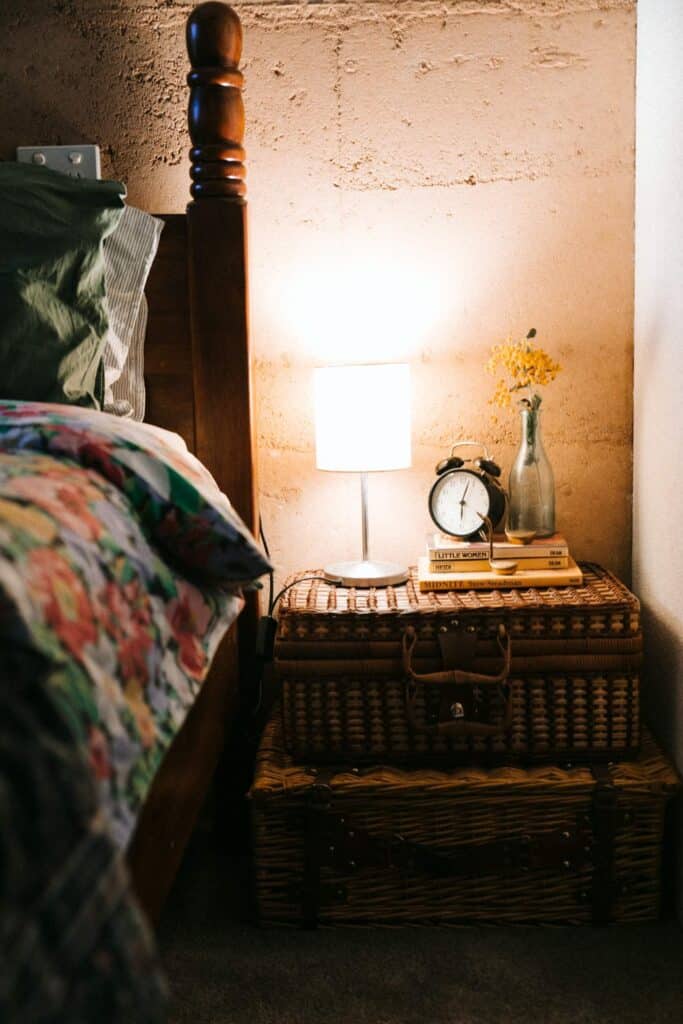If you’re one of the millions of people who suffer from insomnia, you know how frustrating and exhausting it can be. In addition to not feeling rested, lack of sleep can negatively impact your health. Poor sleep has been linked to diabetes, obesity, and heart disease, not to mention taking a toll on your mental health. You’ve probably tried all sorts of things to fall asleep but find yourself lying awake and stressing about why you can’t sleep rather than getting the rest you need. In this blog, we’ll cover several tips to beat insomnia, so you can fall asleep and stay asleep.
Sleepably is a Denver-based sleep coaching business that has helped hundreds of children and adults overcome sleep issues and experience restorative rest. Many people are resigned to living with their sleep struggles or medicating to get the rest their need, but we believe that there’s another way. Sleepably can help you sleep better naturally by letting go of anxiety and building healthy sleep habits. If these at-home sleep tips don’t help you beat insomnia, contact us for a sleep consultation.
What Causes Insomnia?
Many things can cause insomnia, and it often varies from person to person. For some, it’s stress or anxiety that keeps them up at night. Others may have difficulty sleeping due to an underlying health condition such as restless legs syndrome or sleep apnea. In some cases, medications, high altitude, or changes in routine can disrupt sleep. And for some people, no specific cause can be identified.
If you’re struggling to sleep, try to pinpoint the cause of your insomnia so that you can address it specifically. Once you know what’s keeping you awake at night, you can start to develop a plan to improve your sleep.
Tips for Better Sleep
If you think an underlying health issue is behind your insomnia, you probably won’t experience relief without seeking treatment from a doctor. For most of us, however, insomnia is more related to stress and poor sleep habits, which can be addressed at home or with the help of a sleep coach. Here are 9 tips that you can easily implement into your routine to start sleeping better:
1. Create a Bedtime Routine
One of the most important things you can do to improve your sleep is to establish a bedtime routine. This will help signal to your body that it’s time to wind down and prepare for sleep. A few simple things you can do as part of your bedtime routine include:
- Taking a bath or shower
- Reading a book or listening to calm music
- Enjoying a cup of tea
- Journaling
Your bedtime routine should be peaceful and relaxing so that you can start to feel sleepy. Avoid watching TV or working on your computer in bed, as the blue light emitted from screens can actually keep you awake.
2. Exercise During the Day
Exercise is one of the most effective things you can do to improve your sleep. It helps to reduce stress and promote relaxation, both of which are crucial for falling asleep. Just be sure not to exercise too close to bedtime, as this can actually have the opposite effect and make it harder to fall asleep.
If you’re not used to exercising, start small and gradually increase the intensity and duration of your workouts. Even a moderate amount of exercise, like a brisk walk, can make a big difference in your sleep quality.
3. Try Nighttime Breathing Exercises
Breathing exercises are a simple and effective way to promote relaxation and reduce stress. When you’re struggling to sleep, try these exercises:
- Try the 4-7-8 breathing exercise: exhale completely, then inhale for four counts, hold your breath for seven counts, and exhale for eight counts. Repeat until you feel calm and sleepy.
- Place one hand on your chest and the other on your stomach. slowly inhale through your nose, filling up your stomach first and then your lungs. Then exhale through your mouth, pushing all the air out of your lungs.
Nighttime breathing exercises can help to slow down your heart rate and ease you into a state of relaxation.
4. Stretch Before Bed
Stretching is another simple way to promote relaxation and reduce stress. When you’re feeling tense and anxious, try a few gentle stretches in bed. You can even do some basic Yoga poses to help you sleep better.
Some good stretches to do before bed include:
- Seated forward bend: Sit up tall with your legs straight in front of you and reach forward, placing your hands on the ground (or a blanket) in front of you.
- Child’s pose: Start by kneeling, then lower your torso to the ground, stretching your arms out in front of you.
- Legs up the wall: Lie down on your back with your legs up against a wall.
These stretches will help to release any tension in your body and prepare you for a good night’s sleep. You can also take a few minutes to mentally scan your body for areas of tightness and choose your stretches accordingly.
5. Try a Weighted Blanket
A weighted blanket can be a helpful tool for improving sleep. The weight of the blanket provides a gentle, comforting pressure that can help to ease anxiety and promote relaxation. Weighted blankets are available in various weights, so it’s important to choose one that is right for you. A good rule of thumb is to select a blanket that is 10% of your body weight. This will provide enough pressure to be effective without restricting your movement too much.
6. Avoid Alcohol, Caffeine, and Heavy Foods Before Bed
These substances can interfere with sleep and make it harder to stay asleep throughout the night. Alcohol may initially make you feel sleepy, but it disrupts your sleep later in the night by preventing you from entering REM sleep. Caffeine acts as a stimulant and can stay in your body for over 6 hours. So if you’re having trouble sleeping, avoid caffeine after 2 pm. Try a brisk walk or drinking water instead if you hit an afternoon slump.
Heavy meals can also disrupt your sleep by causing indigestion or heartburn. If you’re hungry before bed, try a light snack like a piece of fruit or a few nuts. If you have food sensitivities or allergies, those can also affect your sleep quality, so it might be a good idea to ask your doctor to test you.
7. Create a Comfortable Sleep Environment

Your bedroom should be a haven for sleep. Make sure it’s dark, quiet, and cool to create an environment that promotes relaxation. If you have trouble sleeping in a completely dark room, try using an eye mask or black-out curtains. Earplugs can also be helpful if noise is keeping you awake. And if your bedroom is too warm, try using a fan or opening a window to cool it down.
8. Avoid Bright Lights and Electronics Before Bed
There are also a few things you should avoid in your bedroom if you want to improve your sleep. One is blue light from electronic devices like phones, laptops, and TVs. This type of light suppresses melatonin, a hormone that helps you sleep. So it’s best to avoid screens for at least an hour before bedtime.
You should also avoid bright lights because they can signal to your body that it’s time to start a new day rather than helping you prepare for sleep. You can purchase special reading lights that are specifically designed to help your body relax. And if you need to get up in the middle of the night, use a nightlight instead of turning on a bright overhead light.
Get Help for Your Insomnia with Sleepably
These tips can help you fall asleep and stay asleep through the night. If you’re still having trouble sleeping, reach out to our adult sleep coach at Sleepably. We offer a range of tools and resources, including cognitive behavioral therapy for insomnia (CBT-I), to help you overcome the stress and poor sleep habits that keep you awake. In some situations, you may need to see a doctor to rule out any underlying health conditions, but we can discuss that during your free consultation. Let us support your sleep journey.
